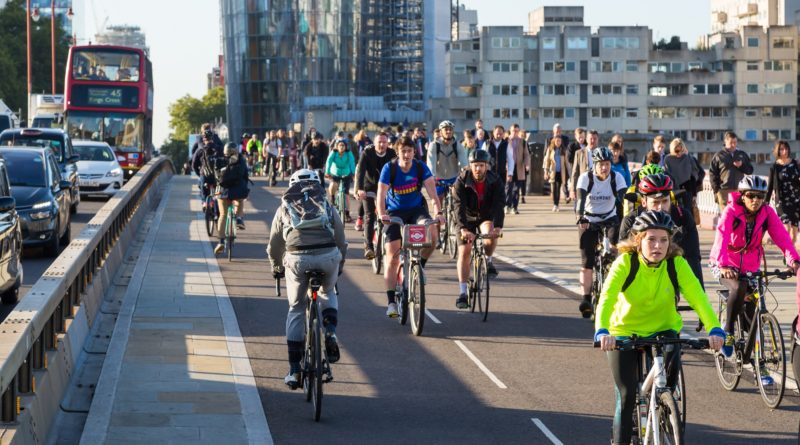Poll finds majority of Londoners support temporary cycle provisions becoming permanent
A new poll of behalf of thinktank Centre for London and London Environment Directors’ Network (LEDNet) has found the majority of Londoners support moves to give more space to pedestrians and cyclists.
The poll was commissioned by Centre for London to explore changing attitudes to travel during the Covid-19 crisis, and the potential impacts on the capital’s transport network once lockdown is lifted.
According to the survey, almost 70% of Londoners support the temporary widening of pavements to aid social distancing, while two thirds support the temporary provision of new cycle lanes, or widening of existing lanes. 57% of those surveyed support making the temporary cycling measures permanent.
Meanwhile, just under two thirds of Londoners support the temporary closure of roads and parking to accommodate walking, cycling and space for queues.
The poll noted support for the measures was consistently higher among those who live in inner London compared to those living in outer London.
Londoners are also finding it difficult to keep socially distant from others while out and about, with 23% finding it hard to socially distance while cycling. High streets were revealed as the most difficult place for people to practice social distancing (42%) while a quarter of people struggled in parks and residential streets.
The survey also asked Londoners how they anticipate their travel habits to change under three scenarios: if lockdown were completely over in three months, six months or one year.
A third of respondents said they will cycle more after lockdown across all scenarios, compared to their pre-crisis habits. This number rises to almost half (46%) for walking, running and cycling together.
However, almost a third of respondents also expected to use their cars more in the future across the three scenarios, which is likely due to the reluctance to use public transport as lockdown eases and people start going back to work.
“This crisis is upending much of what we knew and assumed about Londoners and transport,” said Rob Whitehead, Director of Strategic Projects at Centre for London. “Londoners back many of the changes that the Mayor, Transport for London and local councils are pursuing to adapt. The concern is that we may be witnessing an epochal shift against public transport with ominous longer-term implications.
“Whilst lockdown has encouraged many to try walking and cycling to get to work and exercise, it looks equally as likely to nudge Londoners to return to their cars. Without bold thinking and innovation, London could be heading for a new era of gridlock on our roads.”
This concern was also brought up in a webinar hosted by fellow thinktank Green Alliance, which saw transport experts discuss the potential for an increase in both cycling numbers and car use as lockdown eases.
Although this seems to differ slightly on a nationwide scale, according to a study by cycling charity Cycling UK announced last month, which revealed more than a third of people in the UK said they could ditch their cars in favour of cycling or walking after the Covid crisis.
Dan Jones, Chair of LEDNet, added: “There have been huge positives for the fight against climate change born out of lockdown thanks to people making greener travel choices. The support shown by Londoners for initiatives to increase walking and cycling will be extremely beneficial to London’s environmental future. We want to ensure these decisions become habits as we enter the next stage of the pandemic and London’s recovery.”



